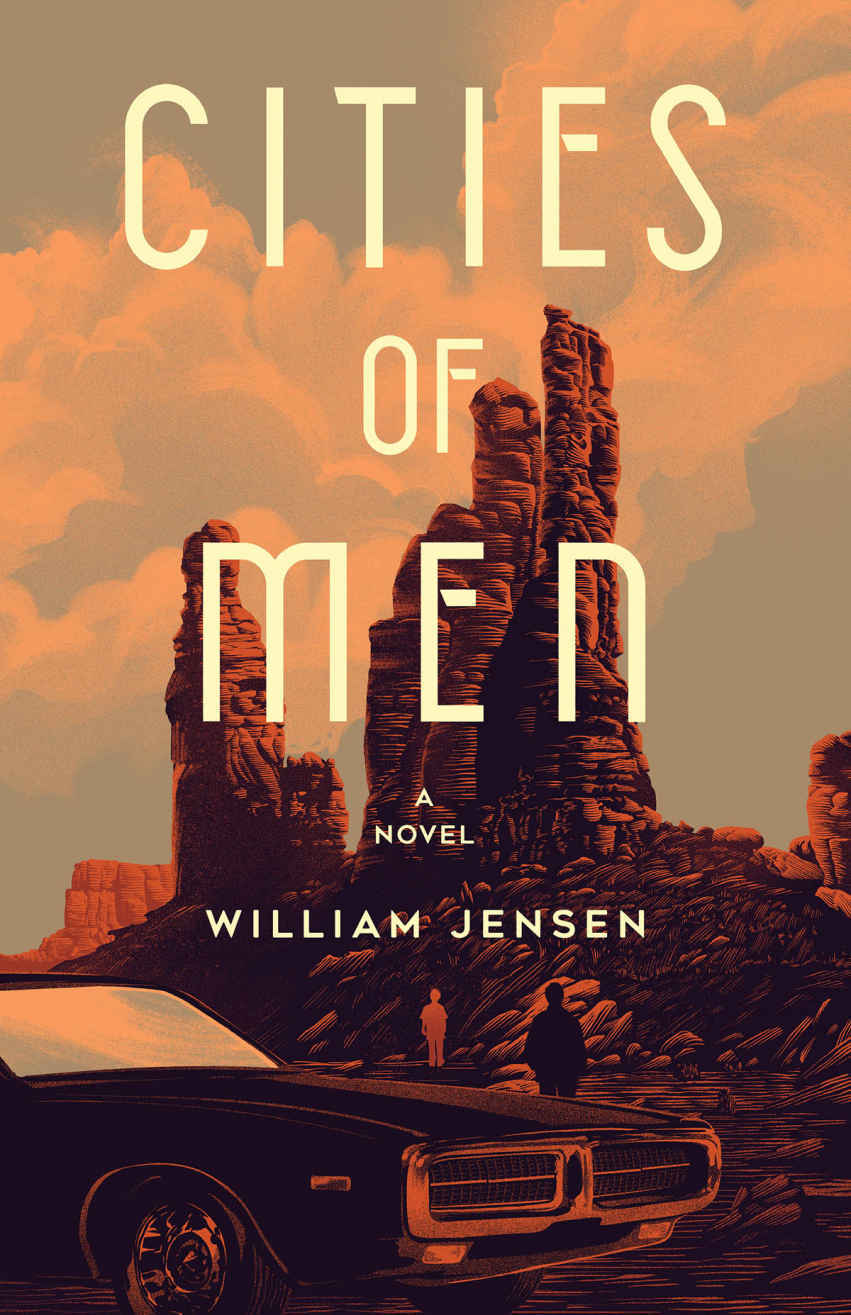Cities of Men
 Wednesday, August 30, 2017 at 09:50PM
Wednesday, August 30, 2017 at 09:50PM 
Twitter's cool. There I said it, and we got that out of the way.
One of the many ways it is cool is the writers that I run into (and often befriend). Once such writer is William Jensen. Can't recall how we started chatting, but possibly because we both had our debut novels come out this May. We swapped novels, and to be honest it took me a while to get to reading his book. This was mostly an overbusy life, and a night table absolutely groaning under the weight of the "to-be-read" pile.
When I finally cracked it, two pages in I knew I was going to love it. True, we both had some pretty similar influences. Though, a big difference is that William is from Texas and I'm from the land of maple syrup and poutine. I also think that if I really didn't like the book, I wouldn't have finished it. And if I didn't like it, I might not review it on a public forum. Maybe, I'd send out a nervously friendly email saying, uh, yeah, it wasn't really for me.
But here is the thing - I goddamn loved it! It hit home for me in so many places. There were some funny coincidences and parallels with my novel that popped up for me. We both had teenage boy protags (12 and 15). We both were writing about different eras (70s and 80s). And strangely we both started the books with quotes from Tennyson (that was ultra-weird.)
So yes, I did end up putting the review on goodreads and Amazon. And now I am shouting about it at woofreakinhoo.
Here it is:
Cities of Men by William Jensen
This is a novel that will stay with me a long time - and I don't say that lightly.
The characterizations and tight prose in Cities of Men reminded me of early Richard Ford, especially his novel Wildlife—in fact the novel read like a classic, with echoes of Carver, and maybe even Sherwood Anderson or Updike. But Jensen's book is more than a homage to these past greats. The story is electrifying in a way that I don't see much anymore. The charge is an emotional one, the human condition spilled out in the pain and confusion of a teenager who can't understand why the world has dealt him such a raw deal.
The deal here is Cooper (Coop) a twelve-year-old growing up in the southwest has lost his mother. Her disappearance is what drives the narrative — and it drives it like the Charger beautifully illustrated by Kevin Tong on the cover. Coop's father is a Vietnam vet with PTSD and a deep streak of violence and anger, buried within a tight skin of trying to do the right thing, seemingly ambivalent, but still ready to burst at any moment. Coop and his dad attempt in various ways to track down the wayward wife and mother, but the reader is somehow never sure how much the father wants to find her. It's a difficult emotional situation to describe, and I don't want to give away anything. But throughout the ordeal Coop goes deeper into his own pain, and his own violence emerges. I am left wondering what this book, set in the 80s, is saying about our culture of violence today, and the broken families that create it.
Especially poignant, and at times hard to read, is the relationship between Coop and his friend Donald. Jensen nails the conflicting emotions that run through adolescence, and even more so for those put under extreme duress like Coop, and those on the outside like Donald.
The novel captures the era beautifully, and characters like the father's friend Sebastian are a reminder that the druggy 70s and counter-culture 60s were not that long ago. It's an era I recall well, but in a totally different geography, still the touchstones and pop culture references enliven the narrative rather than feel forced. Maybe this is what makes it feel like it was written a while ago.
But I don't want to make this review sound like this novel doesn't have a modern sensibility. The reason why this book will stay with me is the way it describes the loneliness and confusion of growing up. Calling it "coming-of-age" gives it short shrift. Because the loneliness that it talks about affects us all. The mother wants something more of her life, Coop's father tries to make a life out of what he's been dealt, and Coop most of all exhibits the deep pain of abandonment, and raging against an unjust world. Damn right he wants to smash things.
This is a novel to read and consider. And one with a resonance that will not be easily be dismissed from the reader's memory.
5 Stars



Reader Comments